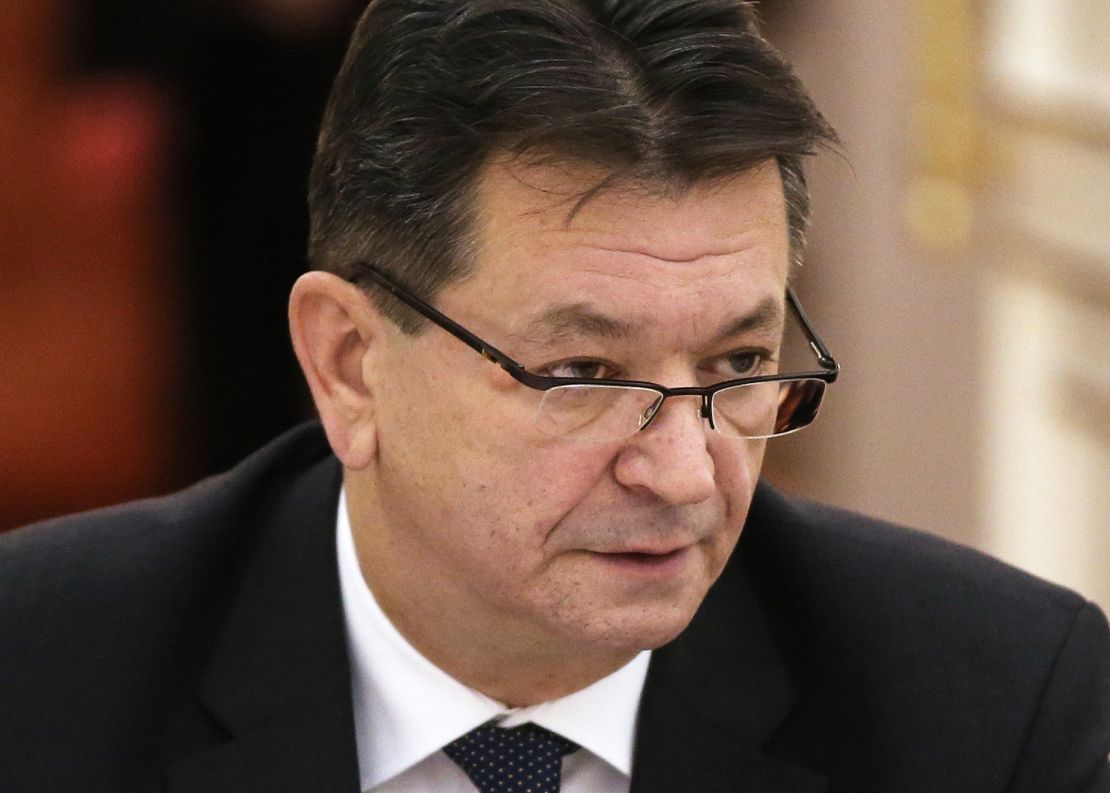Opponents of Russian President Vladimir Putin gave a collective cheer Wednesday, after Kim Jong Yang of the Republic of Korea was elected the new president of the international police agency Interpol at a meeting in Dubai.
The president of Interpol is not in charge of the organization’s day-to-day operations. But the collective decision to pass over a Russian police general for the post is being cast as a victory in efforts to roll back Russia’s rising international influence.
The reason? The selection of a new Interpol chief had become a new arena for a showdown between Russia and the West. The candidacy of former Russian Interior Ministry official Alexander Prokopchuk raised concerns in Washington and Western capitals about a broader agenda by Moscow to bolster its ability to target its political opponents.
Washington threw its weight behind Kim’s candidacy. US Secretary of State Mike Pompeo endorsed Kim, saying: “We encourage all nations and organizations that are part of Interpol and that respect the rule of law to choose a leader with credibility and integrity that reflects one of the world’s most critical law enforcement bodies.”
Interpol is an international clearing house for national police forces to share information to solve crimes and track fugitives. Critics, including US lawmakers, have said Russia uses Interpol’s procedures – including its so-called “Red Notices” – for the purpose of settling political scores and harassing opponents and dissidents.
For Michael McFaul, the former US ambassador to Moscow, the purpose of Prokopchuk’s candidacy seemed clear: To give Russia fresh advantage in its efforts to pursue Putin’s foes.
“Over the summer, the Russian government called for my arrest based on a complete fantasy, an allegation with no connection to reality,” he said on Twitter ahead of the vote in Dubai. “So handing Interpol over to one of Putin’s loyal cadres scares me, yes.”
McFaul was referring to an idea floated by Putin at the Helsinki summit with President Donald Trump in July. After the meeting, the White House said it would entertain a proposal raised by Putin to interrogate Americans in exchange for assistance in special counsel Robert Mueller’s investigation into Russian election meddling.
Putin suggested investigators could come to Russia to question Russians who been charged with interfering in the 2016 presidential election. In return, the Kremlin leader said he would expect the US to allow Russian investigators to question Bill Browder, the American-born financier who successfully lobbied for the passage of the Magnitsky Act in the US.

Kremlin gives little away
The Magnitsky Act has been a thorn in the side of the Kremlin: It blocks entry into the US and freezes the assets of certain Russian government officials and businessmen accused of human rights violations. Browder says the Russian government has retaliated by convicting him in absentia on politically motivated charges and issuing a string of “red notices” in attempts to arrest and extradite him. After the vote, Browder was jubilant.
“A total humiliation for Putin,” Browder said on Twitter. “He must be stomping around the Kremlin right now, furious.”
If Putin was indeed furious, the Kremlin was giving nothing away. Kremlin spokesman Dmitry Peskov said Wednesday “the pressure was strong” against the candidacy of Prokopchuk, but said Russia accepted the result.
“It’s a pity, of course, that our candidate did not win, but on the other hand, if you look at a number of statements from a number of countries on the eve of the elections impartially, then, of course, the pressure was strong,” Peskov told reporters in a conference call.
The reaction in Ukraine was also telling. Ukraine has been locked in a bitter conflict with Russia after the annexation of Crimea in 2014, and a war with Russian-backed separatists in the country’s east has claimed over 10,000 lives.
Arsen Avakov, Ukraine’s minister of interior, posted a photo of himself with Kim.
“The representative of South Korea was elected President of Interpol,” Avakov wrote. “Russia’s candidacy was rejected. This battle is won. Thank you all! Glory to Ukraine!”
The election of a new Interpol president is rarely an event that catches the international spotlight. But Wednesday’s vote comes after months of confrontation over Russian meddling and the Salisbury nerve-agent poisonings.
The Salisbury poisonings prompted a wave of diplomatic expulsions: Russian diplomats were kicked out of more than 20 countries, including 18 European Union states, the United States and Canada. Wednesday’s vote also appears to present a new setback for Moscow on the world stage.





